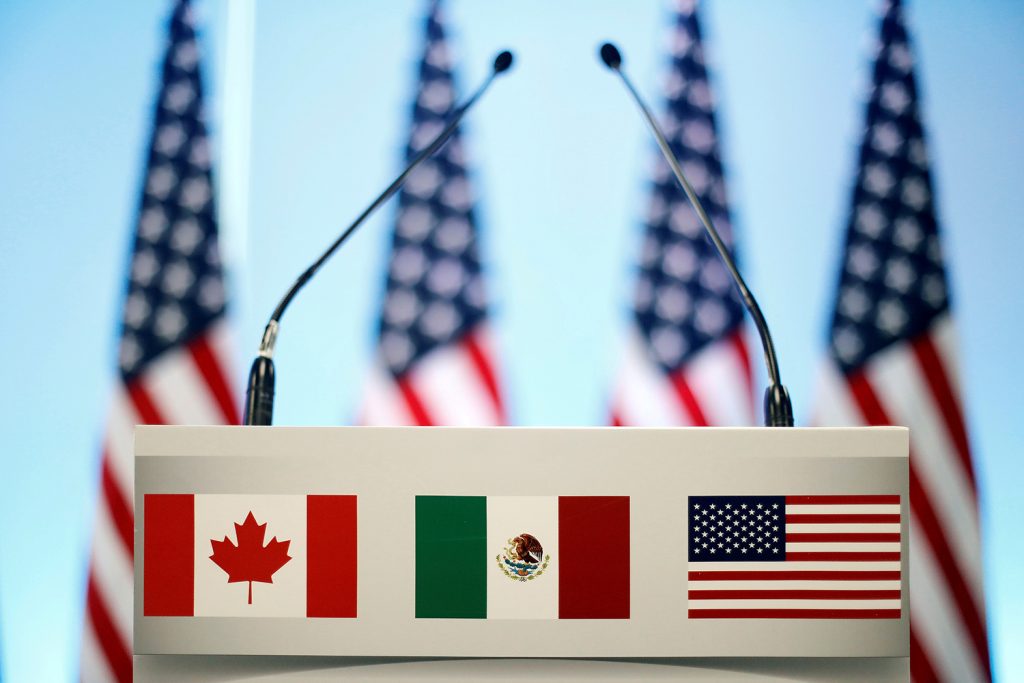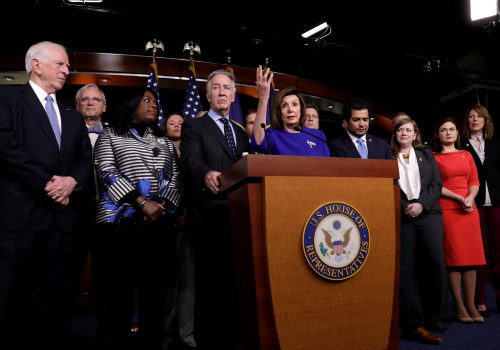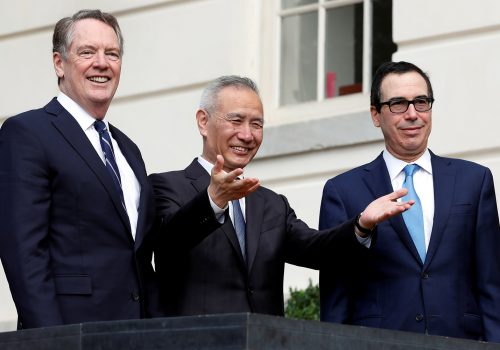Final agreement on the United States Mexico Canada Free Trade Agreement (USMCA) has important geostrategic implications for the future of transatlantic trade. For the first time since 2001, US labor unions are voicing support for a free trade agreement, while significant enhancements to USMCA’s environmental chapter were needed to secure ratification in the United States Congress. Many may mistakenly conclude that this shift in the political constellation of support for trade agreements in the United States bodes well for another run at a free trade agreement between the United States and the European Union. While it is true that the environmental and labor chapters signal a shift towards greater convergence of standards between the United States and Europe, these are not the issues that have long held back progress towards deeper economic integration across the Atlantic. In addition, other ground-breaking components of the USMCA potentially create new challenges for transatlantic trade harmony.
Digital trade: Strategy and tensions
The USMCA’s digital trade chapter has received far less media attention than the environmental and labor issues. This is unfortunate since the foundation for modern, developed economies is being built around global value chains with digital services trade at their core. Indeed, as discussed here and here recently, the majority of value and economic growth in the US economy is actually driven by services. These services generate voluminous amounts of data, as do a growing array of physical items such as automobiles, refrigerators, and thermostats.
The strategic importance of digital trade generally and data specifically has been part of the trade policy discussion for years both in Geneva (through the long-running negotiations on the Trade in Services Agreement or TISA) and in national capitals. These are not new issues. While TISA negotiations languish, the US Trade Representative (USTR) has been moving forward methodically and strategically. Ten different free trade agreements (FTAs) have been executed since the turn of this century with significant digital trade chapters. As noted in this blogpost for the Washington International Trade Association earlier this year, multiple US administrations have held firm on two key principles for digital free trade: (i) zero tariffs/customs duties; and (ii) non-discrimination for all digital products.
More recent agreements include requirements for digital authentication of trade documents (which opens the door for widespread adoption of blockchain-powered smart contracts and bills of lading), consumer protection, and prohibitions on data localization requirements.
Digital trade in the USMCA
The USMCA digital trade chapter breaks new ground and sets a foundation for future negotiations. The standards in that chapter will create challenges for European counterparts not just in the European Union but also affiliated European nations like Switzerland and the United Kingdom. Some of the main components of that chapter include:
- With respect to data privacy, the USMCA uses as its reference point the Asia-Pacific Economic Cooperation privacy framework and the Organization for Economic Cooperation and Development’s 2013 data privacy guidelines which diverge in key respects from the European Union’s General Data Privacy Regulation (GDPR).
- The agreement expressly prohibits restrictions on cross-border information transfers (including personal information). “Legitimate public policy” objectives are permitted to place some restrictions on such transfers, but only if such restrictions are not “greater than necessary to achieve the objective.” These terms are not defined.
- The agreement flat-out prohibits signatories from requiring firms to use computing facilities in the territory “as a condition for conducting business in that territory.”
- It establishes significant cooperation and cybersecurity obligations.
- It expressly prohibits signatories from requiring disclosure of source codes and algorithms as a condition for permitting related software and services being sold in the jurisdiction.
- Signatories are prohibited from imposing liability on interactive computer services provided on a cross-border basis except for the purposes of protecting intellectual property and criminal law enforcement.
Many of these conditions could easily be seen as addressing ongoing tensions with China. But the provisions will soon become US law as part of the USMCA implementing legislation. They go far beyond the discussions in Geneva regarding the TISA and they will certainly be finalized long before the TISA negotiations have concluded.
Implications for transatlantic trade policy
Classic transatlantic trade tensions regarding agriculture and automobiles will likely continue to dominate headlines and political capital in the near-term. But the real foundation for a solid 21st century economic integration framework for a “Distributed Age” must be forged in the details regarding digital trade. USTR and its global counterparts understand this. The challenge is that on many of these issues, perspectives differ significantly between the United States and its largest trading partners.
A new Commission is now in place in Brussels. The first two years of a new Commission create real opportunities to advance strategic agendas and lay out bold visions for the future. Policymakers in Brussels should consider carefully the digital trade chapter of the USMCA to identify strategic points of convergence and key divergences that require discussion. Early and detailed discussions now will lay the foundation for solid agreements in the medium-term.
Non-EU powerhouse economies in Europe like the United Kingdom (which seems to continue to barrel towards Brexit as of this writing) and Switzerland should also consider carefully the digital trade chapter. Identifying quick strategic wins not only through FTA frameworks but also through intermediate trade tools (like trade facilitation agreements and memoranda of understanding) may facilitate the free flow of data and digital goods that can create faster growth and deeper cross-border economic integration. Where strategic divergences exist, these nations will likely engage in strategic trade diplomacy, shuttling between Brussels and Washington as well as Geneva, to craft the next set of trade policy standards.
The attention today rightly sits with the breakthroughs regarding the labor and environment provisions of the USMCA. But trade policy strategists in Europe and the United States should not delay in using the USMCA’s digital trade chapter as a catalyst to define new foundations for cross-border trade in data and services which will drive economic growth and innovation for the foreseeable future.
Barbara C. Matthews is nonresident senior fellow at the Atlantic Council. She is also Founder and CEO of BCMstrategy, Inc., a start-up company that uses patented technology to quantify public policy risks and anticipate outcomes. Matthews as served in senior positions within government on both sides of the Atlantic, first as senior counsel to the House Financial Services Committee and then as the first US Treasury Attache to the European Union with the Senate-confirmed diplomatic rank of minister-counselor.
Further reading
Image: The flags of Canada, Mexico and the U.S. are seen on a lectern before a joint news conference on the closing of the seventh round of NAFTA talks in Mexico City, Mexico March 5, 2018. REUTERS/Edgard Garrido/File Photo



